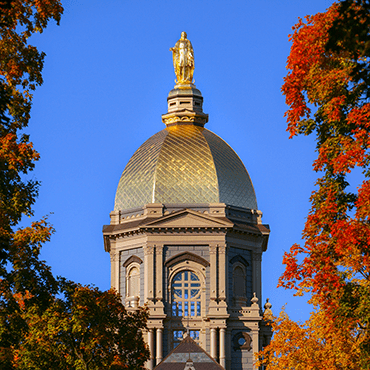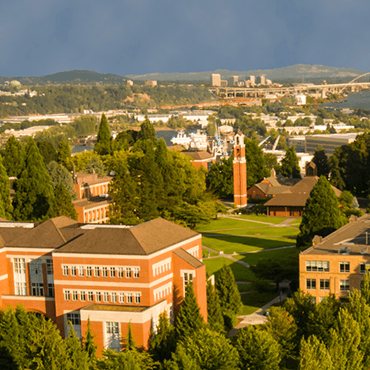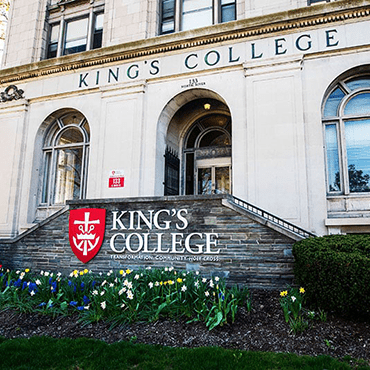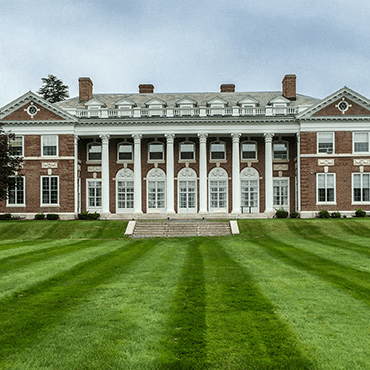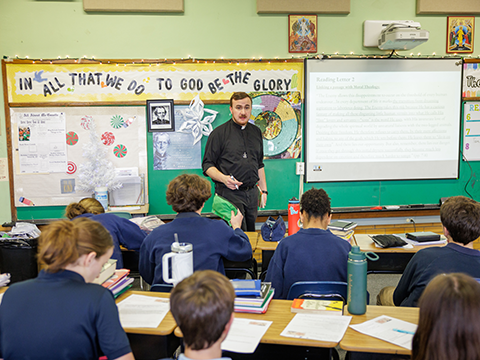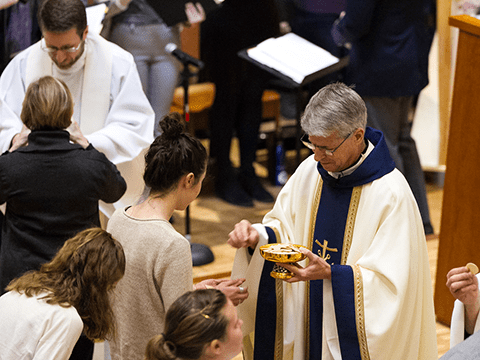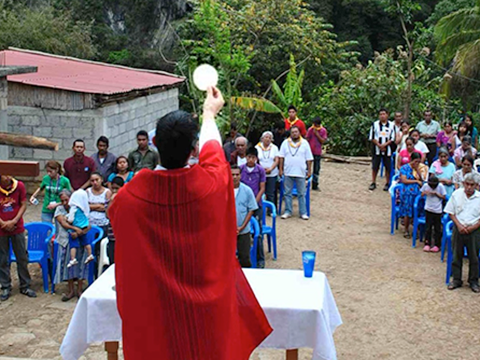Education
Educators In the Faith
At the time Blessed Moreau founded Holy Cross in post-Revolutionary France, faith was being suppressed, and Catholic institutions that had provided education, health care, and other necessary services throughout the country had been decimated without any replacement. Holy Cross’ commitment to education, parish, and mission is rooted in the crisis of those times but is still relevant today. Moreau charged his priests and brothers to be “educators in the faith.”
We live out this mission in many ways, one of which is a commitment to quality Catholic higher education. Among the colleges and universities in the United States guided by the principles, philosophy, and spirituality of Holy Cross today are four currently administered by the U.S. Province.
Read a summary of the booklet, “Holy Cross and Christian Education,” written by Fr. James King, C.S.C. and published by the University of Notre Dame’s Office of Campus Ministry.
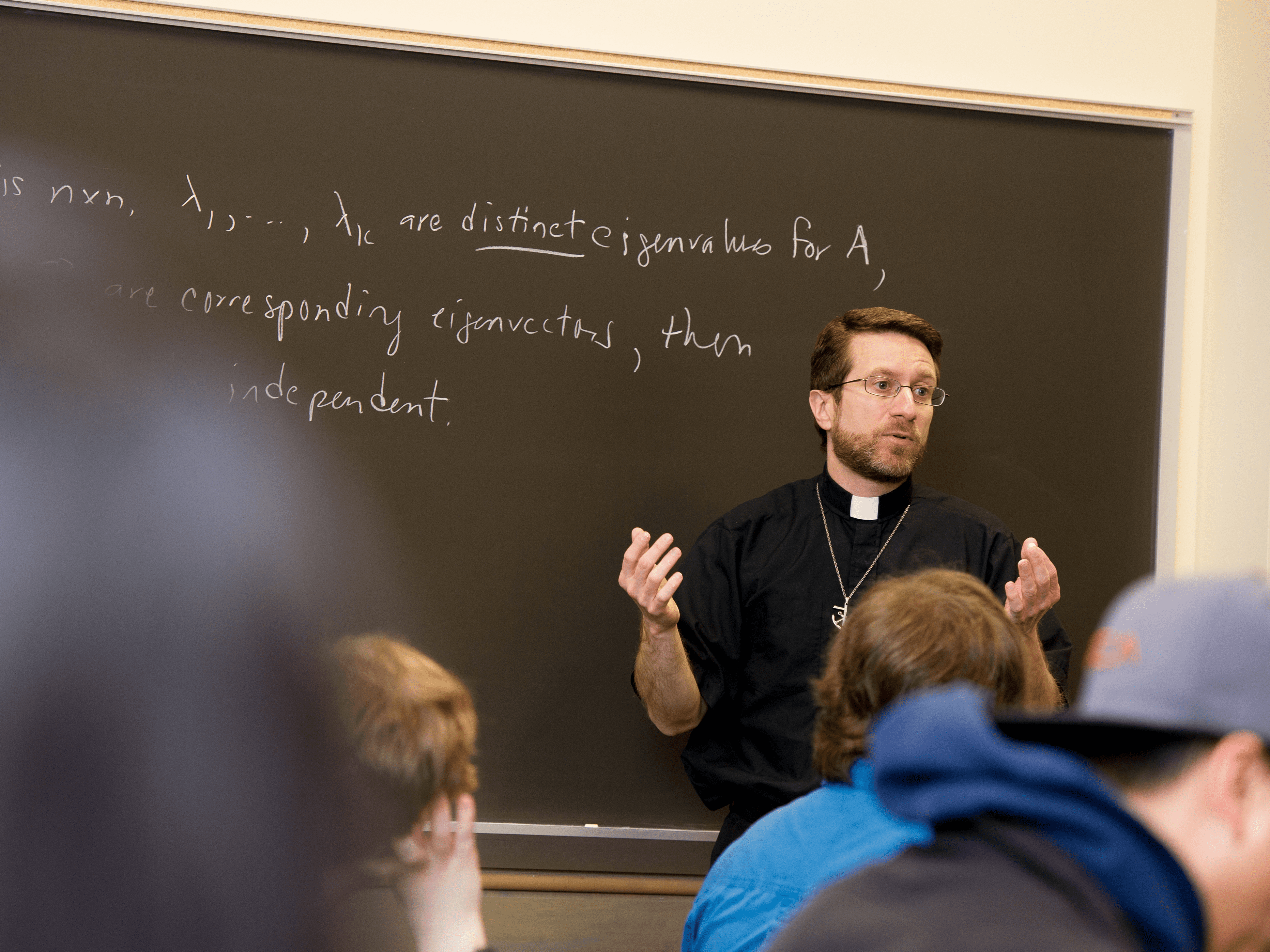
“We shall always place education side by side with instruction; the mind will not be cultivated at the expense of the heart. While we prepare useful citizens for society, we shall likewise do our utmost to prepare citizens for heaven.”
Blessed Basil Moreau, C.S.C.
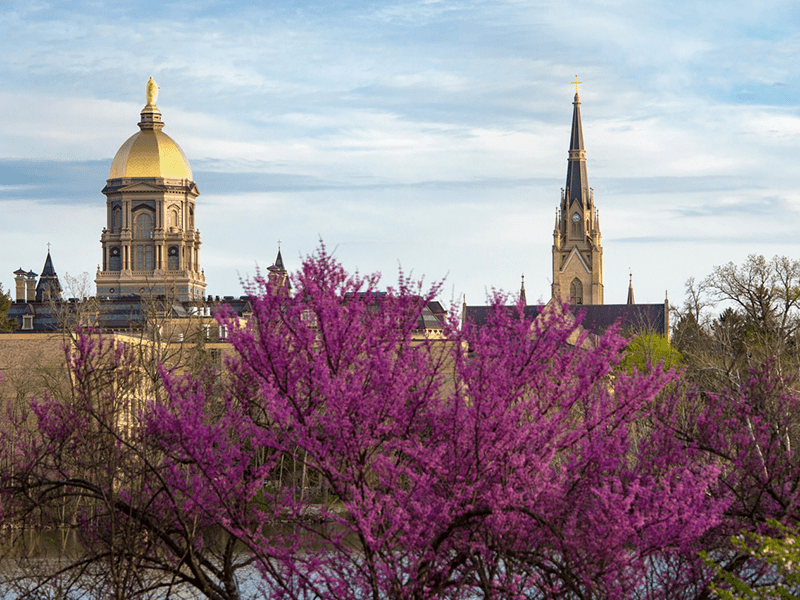
The University of Notre Dame
The University of Notre Dame, the Congregation of Holy Cross’ first educational institution in the “New World,” was founded in the true spirit of Holy Cross’ charisms of education, parish and mission. Founder Blessed Basil Moreau’s vision was for an apostolic religious community destined to serve the Church well beyond the frontiers of his own country. In 1841, just four years after Fr. Moreau had founded Holy Cross, he sent Rev. Edward Sorin, C.S.C., a young 27-year-old French priest, and six brothers to the Midwest of the United States of America.
University of Portland
Take over Columbia, and make it the Notre Dame of the Pacific Northwest! — Rev. Alexander Christie, Archbishop of Portland
Rev. Alexander Christie issued that challenge to the Congregation of Holy Cross’s Indiana Province in 1901, when the University of Portland was known as Columbia. His challenge was accepted, and in September, Holy Cross assumed ownership.
Since then, Holy Cross priests and brothers have served at the University of Portland, carrying out the vision of our founder, Blessed Basil Moreau, C.S.C., to educate the hearts and minds of students. In every endeavor at the university, Holy Cross is helping to shape faithful citizens who will go forth to inspire, lead and improve the world.
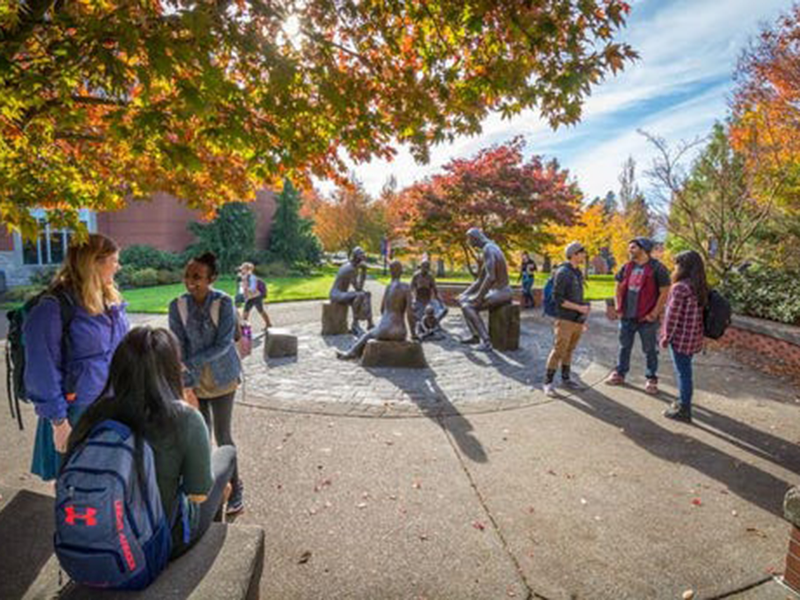

King’s College
May we work together to educate the mind and heart of every member of our college community
King’s College was established in 1946 in Wilkes-Barre, Pa., by the Congregation of Holy Cross. Founded to educate the children of miners of the Wyoming Valley, King’s is a nationally ranked, liberal arts college offering challenging academic programs of 35 majors, 10 pre-professional programs and seven special concentrations. With a 14:1 student/faculty ratio, approximately 2,700 undergraduate and graduate students receive personal attention on this small, urban campus.
For 17 years, U.S. News and World Report has ranked King’s College among the nation’s best colleges for its committed faculty and dedication to providing quality education at an affordable price. U.S. News & World Report also ranked King’s in the top tier among the “Best Universities-Masters” in the north for 10 consecutive years.
Stonehill College
“Stonehill College educates the whole person so that each Stonehill graduate thinks, acts, and leads with courage toward the creation of a more just and compassionate world.” — Stonehill College Mission Statement
Stonehill College was founded in 1948 in Easton, Mass., by the Congregation of Holy Cross. The Congregation had acquired the property for use as a seminary in 1935 and the charter was later amended to allow the establishment of the small, liberal arts college for men, but became co-ed soon after.
Stonehill’s undergraduate program offers 32 major programs in the liberal arts, natural sciences and business, with more than 120 faculty members, 81 percent of whom hold doctoral degrees. Since its first commencement exercises in 1952, the College has graduated more than 20,000 students.
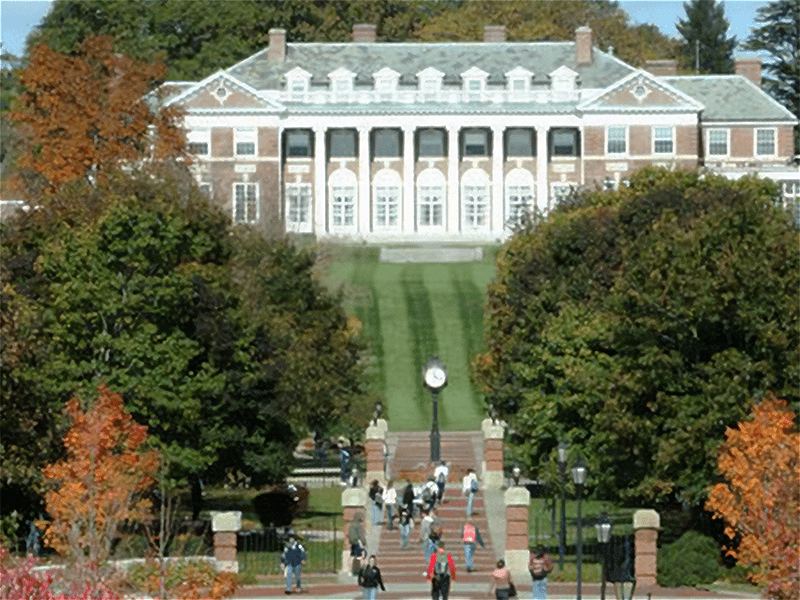
Holy Cross and Christian Education
“(Education) is the art of forming young people. For the Christian, this means that education is helping a young person to be conformed to Jesus Christ.”
– Bl. Basil Moreau, C.S.C.
With those words, Blessed Basil Moreau began to pen a short treatise entitled Christian Education that was designed to spell out the basics of a Holy Cross education at the primary level. The five principles to follow are clearly evident in this unfinished work’s opening pages and typically characterize modern Holy Cross educational institutions throughout the world, even as those have grown to include much more advanced ones of higher learning than anything Moreau envisioned. Drawing upon letters, sermons, Christian Education and other writings of Moreau, it is clear how that charism continues to influence the community’s mission of education and evangelization in the world and render a distinctive character to its ministries.
As the years have unfolded and Holy Cross has delved deeper into the writings of the founder and his legacy and come to see with more clarity the depth of his vision, there are five elements that define a Holy Cross education and are universally evident whether one is speaking of a school in India or Indiana:
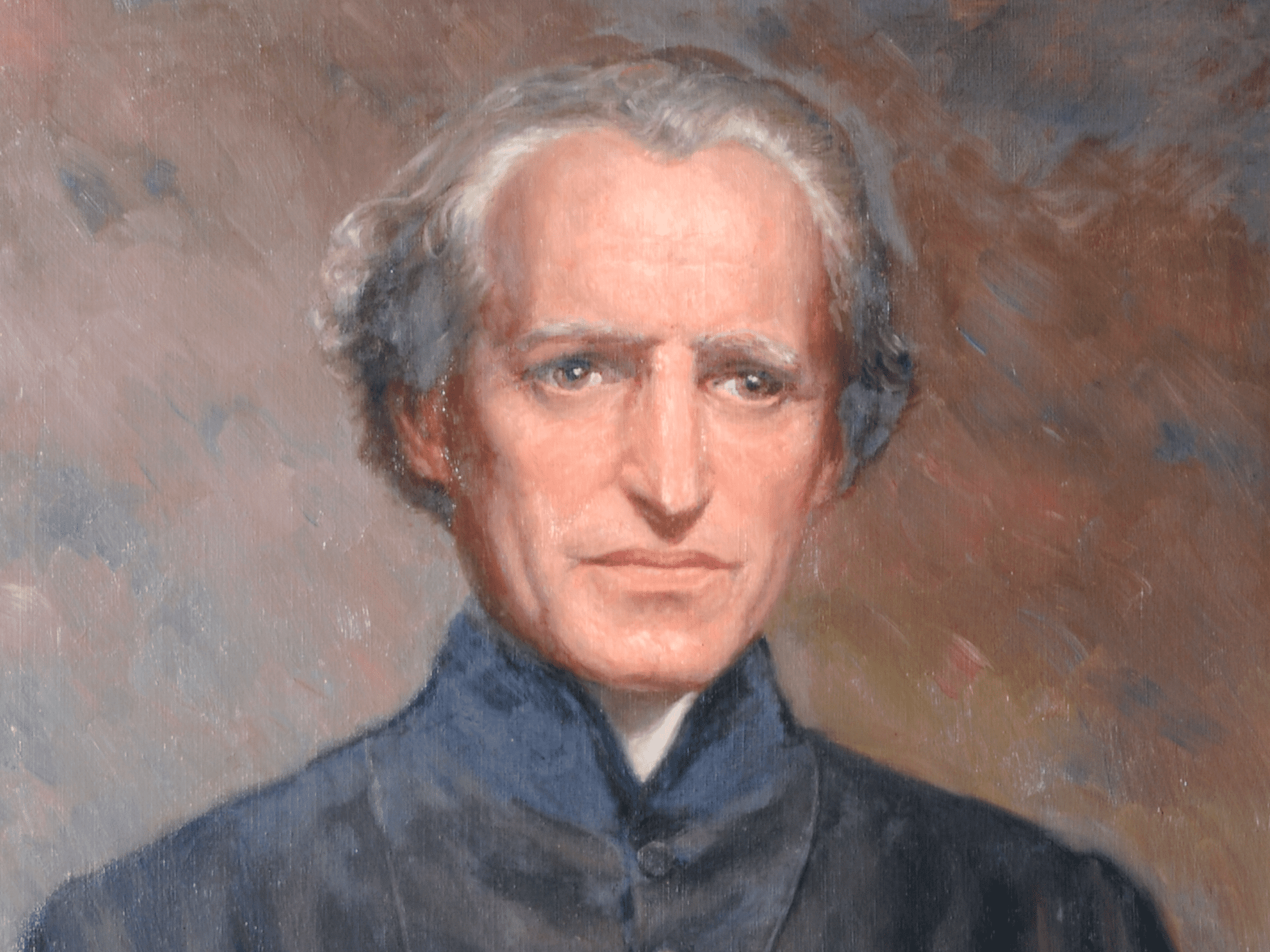
Mind: Seeking understanding through the integration of faith and reason.
A Holy Cross education begins with a rigorous and full development of the mind. Moreau himself was a committed student who took his studies seriously and engaged energetically in the intellectual debates of his day. He perceived early on that it could only be detrimental to both Church and society were Catholics to refrain from engaging the scholarly questions and controversies of the age. Like John Henry Cardinal Newman, his contemporary, Moreau sought to instill within students the belief that reason and faith were complementary aspects of God’s revelation. He resisted the post-Enlightenment tendency to compartmentalize theology and rely solely upon human knowledge. In later decades, as he fought for Holy Cross schools to gain acceptance and credibility, Moreau realized that the students who graduated from them would need to familiarize themselves even with theories and beliefs they opposed and become smarter, more determined, better debaters who could hold their ground on others’ turf.
Heart: Discerning our personal vocation in service to the Church and world.
Having come of age in the wake of the French Revolution, Moreau knew firsthand that an education which imparts knowledge without values and faith can produce people with sharp intellects but malformed hearts. He was undoubtedly influenced by a wise spiritual advisor who counseled him, “Our first rule must be to disregard what only tickles the ears; it is hearts that we must win.” For him, the development of the heart was rooted in our essential dignity as God’s children. It is a relationship that is made explicit and central in our baptism. The unfolding of our baptismal identity and call is at the core of the cultivation of the heart and the fulfillment of our deepest desire to live in union with God as citizens and leaders in service to the Church and world.
Zeal: Fueling the desire to offer our gifts for the good of all people.
Zeal was the term Fr. Moreau used to express the virtue that actualizes the development of our minds and the cultivation of our hearts for the good of others. An education of minds and hearts can only set the world on fire if it has truly enkindled within a person the desire to act boldly. He benefitted personally from the opportunities that followed to develop his intellect into a powerful means for communicating the gospel to disparate audiences from seminarians to poor country folk who could not sign their names.
But he always understood that it was one’s longing for God and commitment to a life of faith that sustained the use of those gifts for the good of others. Ultimately, he believed Holy Cross schools should help a young person come to a clear understanding of his or her vocation in the Church and in the world, irrespective of our individual roles or responsibilities. He insisted on a preference for “the most abandoned, the most ignorant, the least gifted by nature … because their needs are greater and it is only justice to give more to those who have received less.”
Family: Embracing Christian community as the context for lifelong formation.
Moreau realized that he would never have become a priest but for the influence of his family and also his parish priest who first recognized the stirrings of a vocation and arranged for his education. If people associated with Holy Cross speak frequently today about the “family-like” atmosphere they encounter in our parishes and educational institutions, that is directly traceable to Fr. Moreau’s teaching philosophy and ideals for community life. His modeling of each group within the Congregation, priests, brothers, and sisters upon the image of the Holy Family, caused him to cultivate an environment at Sainte-Croix that would make it feel like the kind of home in which he was raised.
It is that family-like atmosphere that constituents typically identify as the most distinguishing feature of a Holy Cross apostolate. It is, however, an elusive and ephemeral quality, felt more easily by people who have experienced it than readily describable, even for those who have enjoyed a long association with Holy Cross. Though it is arguably the community’s most appealing quality, few would know that what they sense intuitively in a Holy Cross school or parish today was the product of Fr. Moreau’s pastoral genius.
Hope: Trusting in the cross and God’s promise of the kingdom.
Moreau’s spirituality was rooted in the desire to be an apostle, to pick up his cross daily and conform himself wholly to the person of Jesus Christ. He sought to make the Congregation an extension of his zeal for mission and devotion to union with mixed results, but his influence continues to permeate how Holy Cross expresses itself today. Were it not for Moreau’s faith and fortitude no matter his disappointments, the other four principles of mind, heart, zeal and family would have little meaning or purpose. However, they are the foundation for a unique pedagogy that mirrors a person’s natural human development and moral formation along the path of Christian discipleship. Ultimately, his vision encourages us to embrace the cross of Jesus while progressing through this world toward the light of God’s kingdom. Moreau’s educational philosophy was rooted in the belief that we should prepare students to act and engage fully as citizens of this world in preparation for citizenship in heaven.
(Information on Holy Cross and Christian Education originally published by Campus Ministry of the University of Notre Dame.)
“Education is The Art of Forming Young People”
Beyond these four colleges and universities administered by the U.S. Province, we also maintain more than a dozen elementary schools. The global Congregation includes many more schools, including secondary and technical schools in the U.S. and abroad. At all levels, Holy Cross strives to educate both the minds and the hearts of students to grow in Christ’s love and to use their gifts to make the world a better place.
Ministries
While the work of Holy Cross began in education and parish ministry, our mission takes across borders of every sort. For the U.S. Province, our mission includes outreach ministries to the poor, spiritual ministries for families, and a Catholic publishing house. Our mission also includes international ministries, where we seek to educate the hearts and minds of people around the globe.
Education
The priests and brothers of Holy Cross serve in educational institutions around the country, where they seek to form the hearts and minds of young people.
Parish
The United States Province serves 15 parishes in the United States and one in Mexico, focusing the Congregation’s resources on parishes with schools and those that serve the poor.
Mission
Through our creative missionary efforts, we make God known, loved and served in the United States, as well and around the globe.

